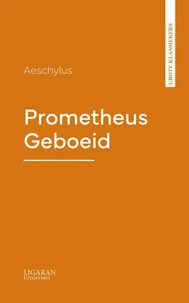The Oresteia Trilogy, Aeschylus's masterwork, presents a profound exploration of justice, vengeance, and the evolution of societal norms in ancient Greece. Comprising three plays-Agamemnon, The Libation Bearers, and The Eumenides-this unabridged English translation captures the lyrical beauty and intricate construction of Aeschylus's language, while immersing readers in the rich tapestry of myth and tradition.
The trilogy is notable for its intricate dialogue and the transition from personal retribution to collective civic responsibility, reflecting the tension between archaic blood feuds and the emerging concept of judicial law, set against the backdrop of the tumultuous aftermath of the Trojan War. Aeschylus, often hailed as the father of tragedy, was deeply influenced by the socio-political landscape of 5th-century BCE Athens.
Having witnessed the devastating consequences of war and tyranny, his works grapple with themes of moral complexity and divine justice. The Oresteia trilogy serves as a commentary on the transition from an ancient worldview to a more enlightened rule of law, likely inspired by his engagement in Athenian culture and civic affairs. This seminal work is an essential read for anyone interested in the foundations of Western literature and drama.
A compelling blend of intricate character dynamics and philosophical depth, The Oresteia invites readers to ponder the nature of justice through its characters' harrowing journeys. Whether approached as a socio-political critique or a timeless narrative of familial tragedy, it remains profoundly relevant and insightful.
The Oresteia Trilogy, Aeschylus's masterwork, presents a profound exploration of justice, vengeance, and the evolution of societal norms in ancient Greece. Comprising three plays-Agamemnon, The Libation Bearers, and The Eumenides-this unabridged English translation captures the lyrical beauty and intricate construction of Aeschylus's language, while immersing readers in the rich tapestry of myth and tradition.
The trilogy is notable for its intricate dialogue and the transition from personal retribution to collective civic responsibility, reflecting the tension between archaic blood feuds and the emerging concept of judicial law, set against the backdrop of the tumultuous aftermath of the Trojan War. Aeschylus, often hailed as the father of tragedy, was deeply influenced by the socio-political landscape of 5th-century BCE Athens.
Having witnessed the devastating consequences of war and tyranny, his works grapple with themes of moral complexity and divine justice. The Oresteia trilogy serves as a commentary on the transition from an ancient worldview to a more enlightened rule of law, likely inspired by his engagement in Athenian culture and civic affairs. This seminal work is an essential read for anyone interested in the foundations of Western literature and drama.
A compelling blend of intricate character dynamics and philosophical depth, The Oresteia invites readers to ponder the nature of justice through its characters' harrowing journeys. Whether approached as a socio-political critique or a timeless narrative of familial tragedy, it remains profoundly relevant and insightful.

 , qui est-ce ?
, qui est-ce ?